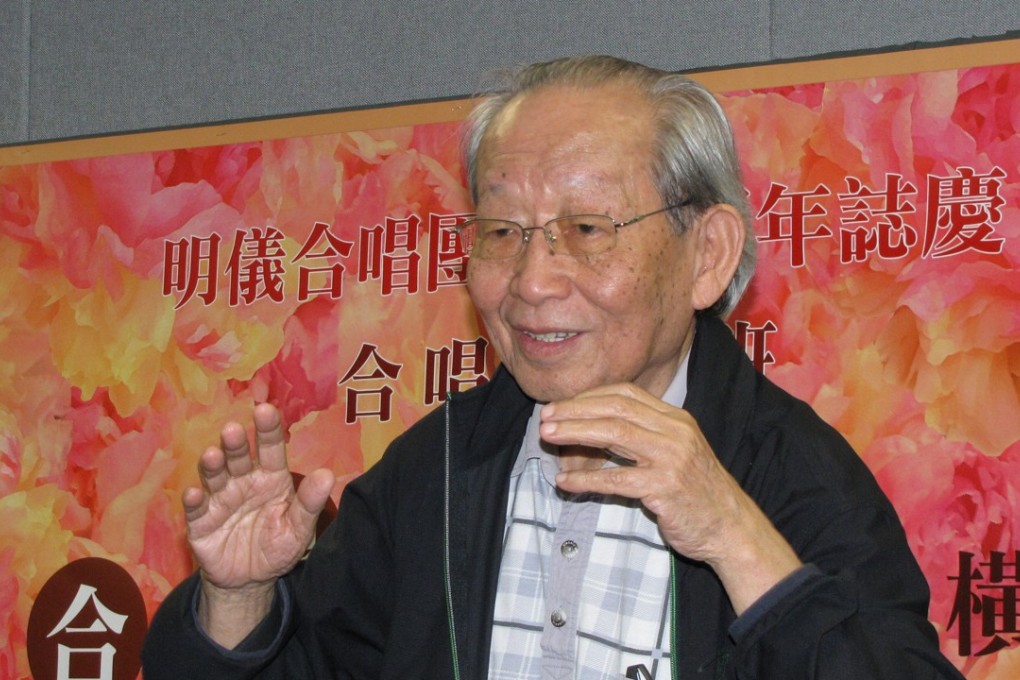Veteran Chinese conductor Yan Liangkun dies aged 93
Yan was one of the dominant figures in choral music on the mainland and in Hong Kong over six decades

Music circles in mainland China and Hong Kong are mourning the death of a conductor who reigned supreme in Chinese choral music for over six decades.
Yan Liangkun, who left behind a rich legacy of choral arts on the mainland as well as in Hong Kong which he once called home, died in Beijing on Sunday morning after fighting cancer. He was 93 and is survived by three daughters.
“Maestro Yan introduced to China a large number of choral gems around the world and Chinese folk music arranged for chorus,” said Feng Wanzhen, a retired soprano in Beijing who worked with Yan since the 1950s.
“His unique way of interpreting the Yellow River Cantata could only come from a man who lived through the war years and worked directly under the composer,” she added.
Born in 1923, Yan grew up in Wuhan and became attracted to the patriotic songs sung by the young in the run-up to the war against Japan in 1937.